7 innovations that are changing the way we manage diabetes, a disease that affects 371 million people worldwide
Medtronic created the world's first 'artificial pancreas.'

Livongo is making a glucose monitor that can get software updates just like your phone.
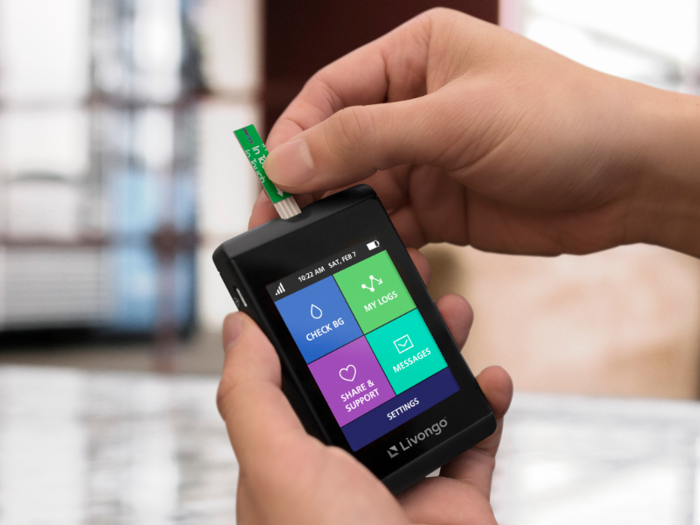
"No one cares about the technology," Glen Tullman, the CEO of California-based startup Livongo and whose son has Type 1 diabetes, told Business Insider. "They simply want to live their life."
On Wednesday, the company launched a glucose monitor that can receive software updates, eliminating the need for people to constantly upgrade to new glucose meters when the technology advances. Livongo also offers the testing strips the machine uses for free by charging employers — companies like Lowes and Office Depot offer Livongo's service as a benefit — a monthly fee.
Bigfoot Biomedical is also building an artificial pancreas.
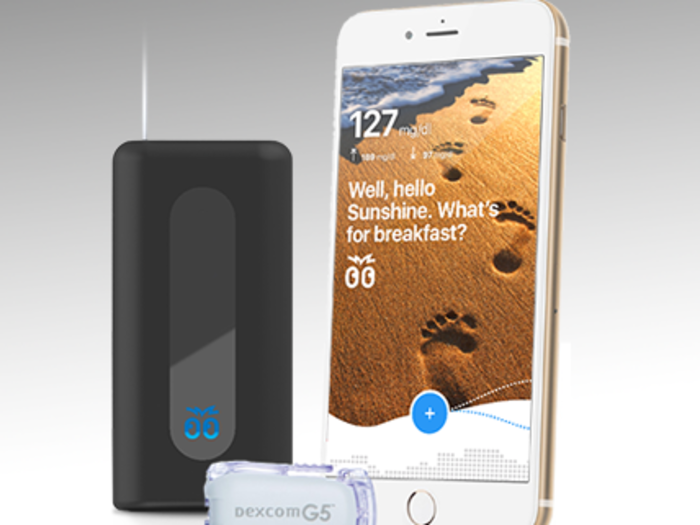
Bigfoot Biomedical's founder and CEO Jeffrey Brewer was among the first to back the artificial pancreas with a donation to JDRF, a diabetes research organization. But when things weren't moving fast enough, he — along with Bryan Mazlish, the company's chief technology officer — decided to take matters into their own hands and build their own artificial pancreas.
Bigfoot bought an insulin pump company, partnered with continuous glucose monitor company Dexcom, and got to work building an artificial pancreas system that could connect to your phone and wouldn't "look like something that should be in the hospital," Brewer told Business Insider. Bigfoot's focus is on the cloud-based technology that surrounds the device.
The first trial for the device got underway in July, and the company hopes to get the device on the market in the next few years. Like Livongo, Bigfoot is hoping to offer the system as a monthly service, so instead of paying for the device and its components when they run out, it's all included in a monthly fee.
The makers of the Omnipod, a tube-free insulin pump, are working on a tube-less artificial pancreas.
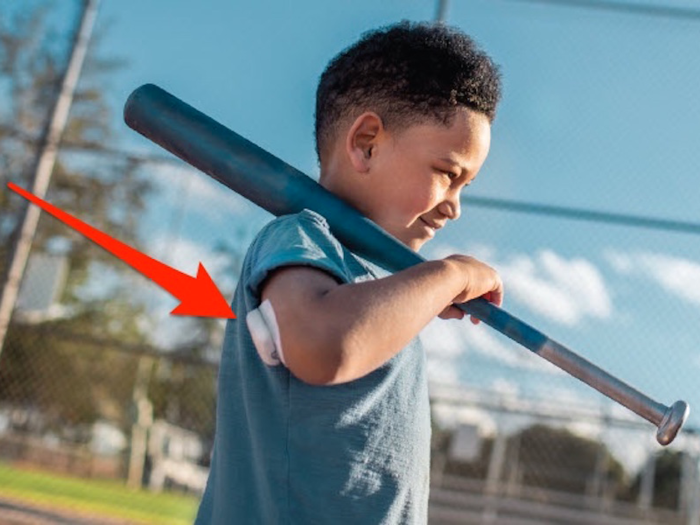
Insulet, a company that makes a tubeless insulin pump called the Omnipod, started its first artificial pancreas clinical trials in September, partnering with the continuous glucose monitor company Dexcom. The Omnipod itself first launched back in 2005, and the company's hoping to get the artificial pancreas on the market by 2018.
Unlike other devices, Insulin's would go directly on the body and sync with a wireless controller. The device would deliver up to three days worth of insulin.
Dexcom built a wireless glucose monitor that can send blood sugar data to your smartphone.
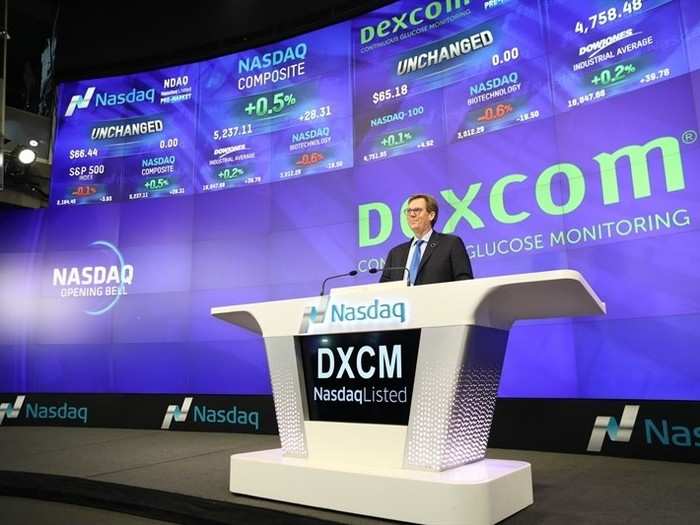
An integral part of both Insulet and Bigfoot's artificial pancreas setup is the Dexcom continuous glucose monitoring system.
Continuous monitoring lets you see not only when blood sugar is too high or too low, but also whether it is rising or falling. According to a review of literature by the American Association of Clinical Endocrinologists, testing blood sugar more frequently tends to be related to better blood sugar control.
Beyond artificial pancreas development, Dexcom is also working with Google's Verily with the hopes of building a smaller, longer-lasting monitor.
Timesulin built a insulin pen that can tell you when you last took a dose...
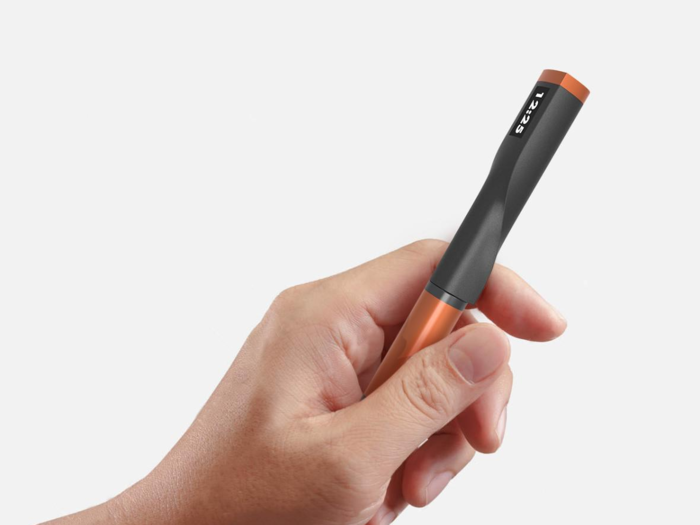
For people living with Type 1 diabetes and some people living with Type 2, injecting insulin is a necessary part of life. Some choose to get insulin through a pump, but others inject either from a vial or using a pen.
So, along with his brother, John Sjölund, who has lived with Type 1 diabetes for more than 30 years, founded Timesulin, a company that makes a pen cap that tracks your last insulin dose. The cap, which is available in drugstores and online, costs around $29 in the US.
The next step, Sjölund told Business Insider, is to build a cap that connects to your phone. Timesulin is hoping to file for regulatory approval of that device in 2017.
Alphabet's Verily wants to use its experience in tech to tap into diabetes data and come up with new innovations.
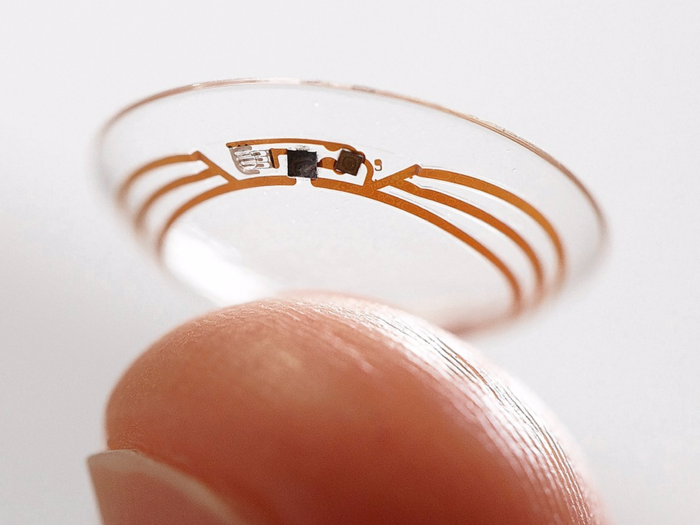
In September, Alphabet's Verily and Sanofi announced a spin-off company called Onduo that's tasked with helping diabetics find easier ways to live their lives and treat the disease. It's also been working on a glucose-monitoring lens, and has partnered with Dexcom. Sayer said that there's a good reason why Verily's so interested in diabetes.
"They felt with all the data you can gather with a CGM, there are many things you could do with diabetes across the board that would change healthcare and ultimately reduce costs rather than increase them," he said.
Popular Right Now
Popular Keywords
Advertisement